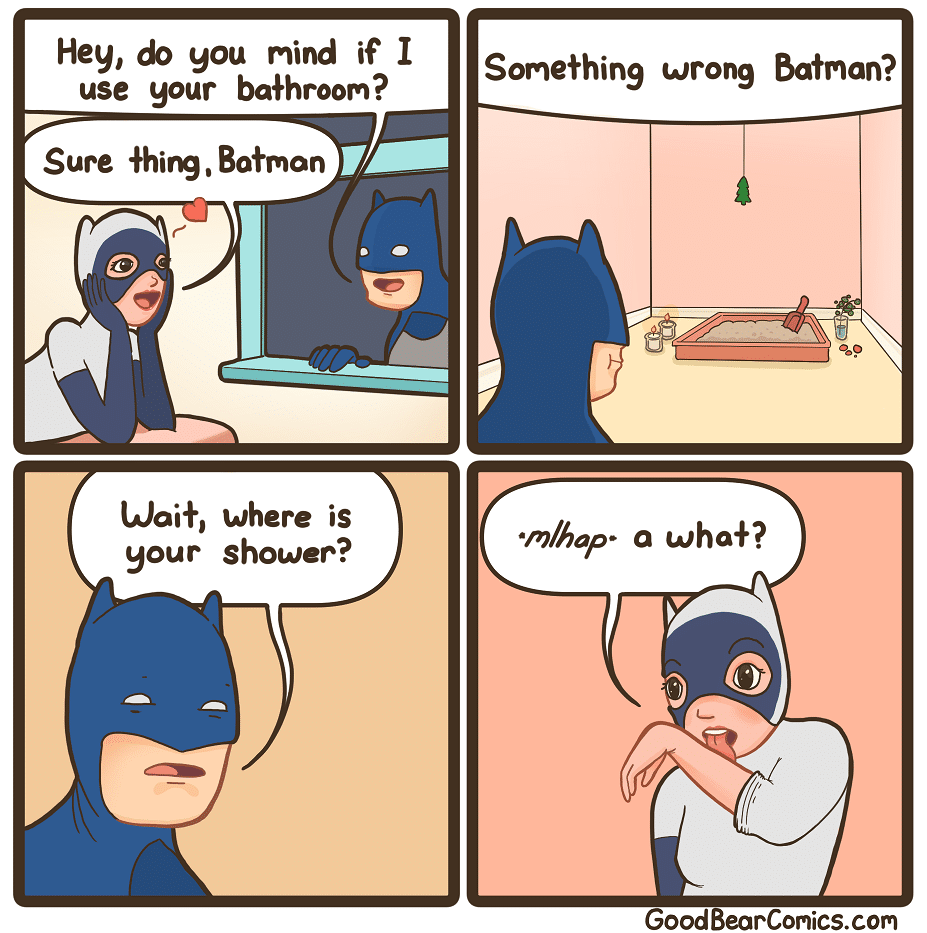this post was submitted on 01 Nov 2024
742 points (95.9% liked)
Comic Strips
12975 readers
2007 users here now
Comic Strips is a community for those who love comic stories.
The rules are simple:
- The post can be a single image, an image gallery, or a link to a specific comic hosted on another site (the author's website, for instance).
- The comic must be a complete story.
- If it is an external link, it must be to a specific story, not to the root of the site.
- You may post comics from others or your own.
- If you are posting a comic of your own, a maximum of one per week is allowed (I know, your comics are great, but this rule helps avoid spam).
- The comic can be in any language, but if it's not in English, OP must include an English translation in the post's 'body' field (note: you don't need to select a specific language when posting a comic).
- Politeness.
- Adult content is not allowed. This community aims to be fun for people of all ages.
Web of links
- [email protected]: "I use Arch btw"
- [email protected]: memes (you don't say!)
founded 2 years ago
MODERATORS
you are viewing a single comment's thread
view the rest of the comments
view the rest of the comments

Pedants: He asked if she minded. She responded saying, "Sure thing," which is an affirmative response, meaning that she did mind. He still attempted to use the bathroom despite her saying she was uncomfortable with that.
I have difficulty with interactions in which people use "do you mind" that I have to be extra clear. Anyone else?
So... when you analyze language, you can think of an utterance's semantics (what it means "at the dictionary level") and pragmatics (what it means in context.) For example, if you're having dinner, and someone asks "can you pass the salt?" in terms of semantics it's a question, but in terms of pragmatics it's generally a command or request for an action.
Similarly, I'd say Batman's first utterance in terms of pragmatics is a request for permission, which is granted by Catwoman's first utterance.
Thanks for the help! I can understand it retrospect, but in the moment, I will be unsure and request confirmation. It's just how it is 🤷
I don't mind...I guess.
What does that mean about your preference with the use of "do you mind"-like questions?
Yes?
Seriously though, the 'do you mind' questions like the one in the comic are really annoying to me because they are a two part question phrased for the part they don't care about. It makes the answer confusing depending on whether it is tsken literally or not, since sometimes it is used that way.
"Do you mind if I use...' is asking both if you can use and if the person minds. The general social expectation is that the person won't admit to minding, and will allow the use. So in this comic catwoman is answering yes to using the bathroom, and not answering whether she cares, because the question is being asked indirectly in this context.
The 'do you mind' question a great example of why many neurodivergent people have such a hard time in social settings, keeping track of all of the contradictory social expectations that don't make sense is tiring and not everyone is consistent.
Circumvent. "Do you mind?"
"Go ahead" or "I'd rather you didn't."
Yes! Thank you very much. It's at least a triple-effect because (1) we get confused about what the response means so we have to focus on solving the riddle, (2) solving the riddle consumes more mental energy so we have less in reserve, and (3) we miss out on everything that occured while we were figuring out the riddle so we have to catch up when we already run slower.
While on a pedantic level it sounds confusing, if someone responds “sure thing”, they are not necessarily directly answering the original question, but more so saying “go ahead” or “do it”. It’s weird, but sometimes people answer in the affirmative despite the answer needing to be negative.
Reminds me how annoying it is when English speakers use "ain't no" in a sentence.
Which is just a double negative that practically almost always means the opposite of what they mean.
Double negatives affirming one another instead of negating is a common thing in language, known as "emphatic negation" or "negative concord". Middle English used emphatic negation and various English dialects still use it to this day including African-American English. They're saying exactly what they mean, just not in Standard English. Just like they're probably not pronouncing the words the same way. No reason to get annoyed.
Not as bad as you, but ya, a little.
My pet peeve is interrogative greetings : how are you? how's it going? What's up? etc.
It's like a preemptive attack.
this is exactly why I switched - "I hope you're well" requires no response
I can understand your discomfort with "do you mind" type requests. It's fitting that the full answer would have been, "It's fine with me, but you're not going to like it!"
When one is asked "do you mind...?" it's perfectly correct in both grammar and politeness to avoid a simple yes or no and phrase your answer unambiguously. But sometimes it's more fun to lean into the ambiguity with a firm "No."
Or an enthusiastic yes.
Do you mind if I use your ___? Yes! 😊